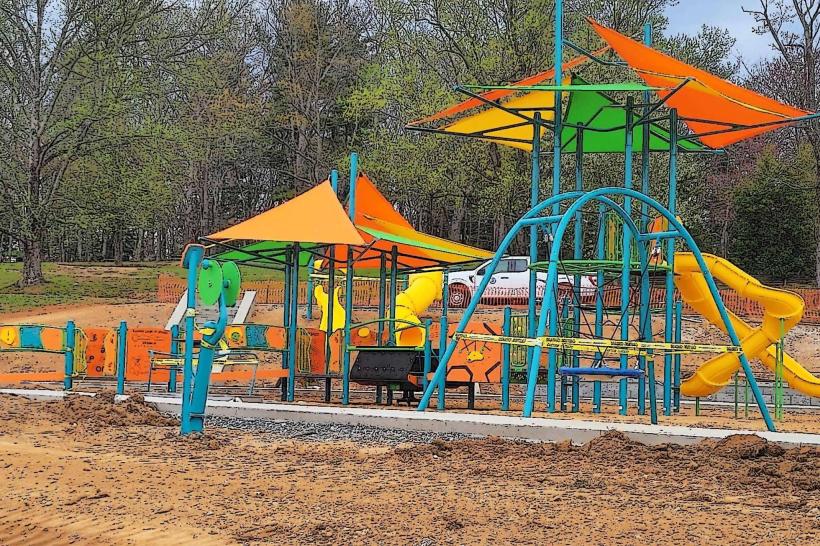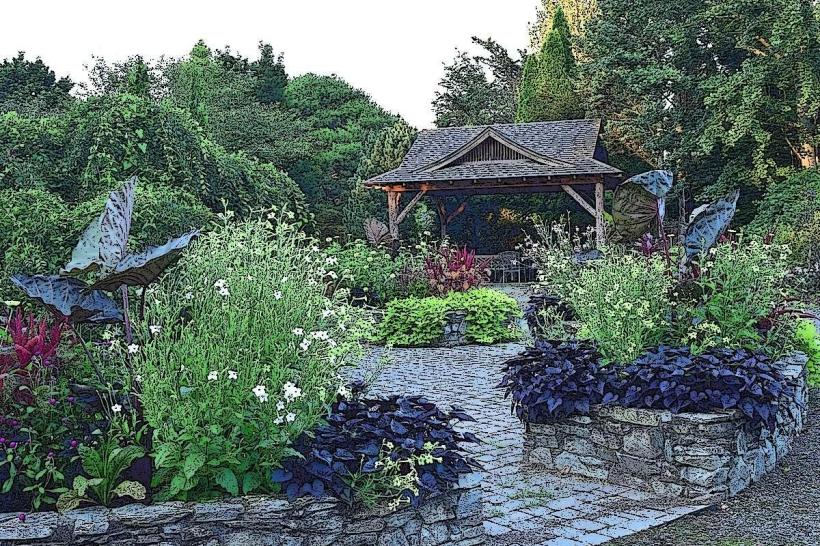Information
City: HendersonvilleCountry: USA North Carolina
Continent: North America
Hendersonville, USA North Carolina, North America
Hendersonville serves as the county seat of Henderson County and is the primary hub of the Blue Ridge Mountains' southern plateau. It is situated at an elevation of approximately 670 meters, 35 km south of Asheville.
Historical Timeline
The city was platted in 1841 on land donated by Judge Mitchell King. Primary governance eras include its 19th-century establishment as a summer retreat for low-country planters and its 20th-century development into the "Apple Capital" of North Carolina. The arrival of the Spartanburg and Asheville Railroad in 1879 catalyzed its growth as a regional trade center. In the 21st century, it has transitioned into a prominent destination for retirees and outdoor tourism.
Demographics & Population
The population within city limits is approximately 15,000, with a county population exceeding 116,000. The demographics are White (75%), Hispanic or Latino (13%), and Black or African American (7%). The median age is 46.5 years, reflecting a high concentration of retirees.
Urban Layout & Key Districts
The city is organized on a traditional grid centered on Main Street. Downtown is a preserved historic district featuring a unique serpentine street design with wide brick planters. The Seventh Avenue District is a revitalized historic rail corridor focused on breweries and "maker" spaces. Laurel Park is an adjacent residential municipality located on the slopes of Jump Off Rock.
Top City Landmarks
Main Street Historic District
Western North Carolina Air Museum
Mineral & Lapidary Museum
Hands On! Children's Museum
Jump Off Rock (Panoramic overlook in Laurel Park)
Transportation Network
Movement is serviced by Apple Country Public Transit. The city is connected via I-26 and US-64. Asheville Regional Airport (AVL) is 15 km to the north. Ride-sharing via Uber and Lyft is active but limited compared to larger hubs. Traffic density is moderate, with significant congestion on Four Seasons Boulevard (US-64) during peak retail hours.
Safety & "Red Zones"
The general safety level is high. Caution is advised at night in specific areas of the Seventh Avenue periphery and sections of Greenville Highway, which experience slightly higher rates of property crime. Common scams are rare, usually involving seasonal agricultural worker fraud or unauthorized "Apple Festival" parking solicitations.
Digital & Financial Infrastructure
Internet speeds average 250 Mbps with fiber availability via AT&T and Optimum. Main mobile carriers are Verizon, AT&T, and T-Mobile. Card acceptance is universal. ATMs are concentrated on Main Street and within major grocery chains like Publix or Ingles.
Climate & Air Quality
Temperatures range from -2°C to 9°C in winter and 18°C to 28°C in summer. Air quality is exceptionally high. Specific weather risks include mountain fog and heavy snowfall during winter storm cycles.
Culture & Social Norms
The standard tipping percentage is 18–25%. A handshake is the standard greeting. Dress codes are casual ("Mountain-Traditional"). Smoking is prohibited in all public indoor spaces. The city is culturally defined by the annual North Carolina Apple Festival.
Accommodation Zones
Main Street / Downtown: Recommended for walking access to local dining and galleries.
Upward Road / I-26: Recommended for national hotel chains and ease of highway access.
Local Cost Index
1 Espresso: $4.25 (USD)
1 Standard Lunch: $15.00 (USD)
1 Bus Fare: $1.00 (USD)
Nearby Day Trips
DuPont State Recreational Forest (20 km)
Carl Sandburg Home National Historic Site (5 km)
Pisgah National Forest (25 km)
Chimney Rock State Park (30 km)
Facts & Legends
Henderson County produces 65% of all apples grown in North Carolina. Historically, the city’s Main Street was designed with its distinct curves in the 1970s to discourage through-traffic and encourage pedestrian commerce-a pioneer in "slow street" urban planning. A local legend involves the "Jump Off Rock" maiden, a spectral Cherokee figure said to be seen on the overlook at sunset, mourning a lover lost in battle.










